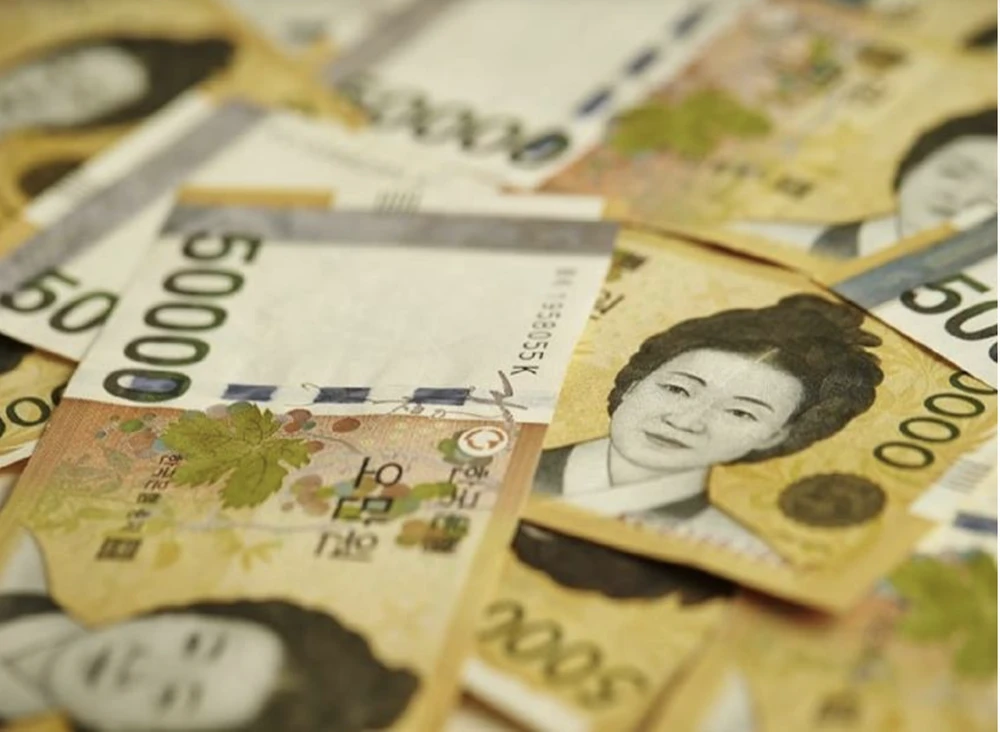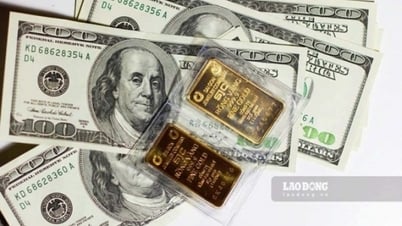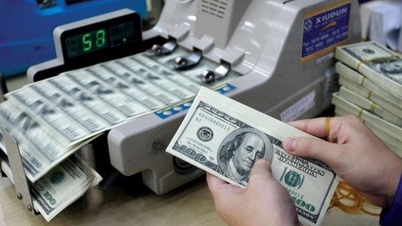The South Korean won has fallen more than 7% against the dollar this year, marking its steepest decline since the 1997 Asian financial crisis and the 2008 global financial crisis, amid geopolitical uncertainty and a strong dollar recovery.

Yonhap news agency, citing data released by financial regulators on April 22, said the South Korean won closed at 1,382.2 won per USD in the last trading session of the week, down 7.3% from the 1,288 won per USD recorded at the end of 2023. This is the largest decline since March 1990, when the country adopted a market-weighted exchange rate system instead of a currency basket peg system.
Last week, the South Korean won slid to the closely watched level of 1,400 won per dollar in trading on April 16, despite indirect intervention by financial regulators to calm the market.
At their first trilateral finance ministers meeting last week, top policymakers from South Korea, the United States and Japan expressed “serious concerns over the recent sharp depreciations” of the Korean won and the Japanese yen. Policymakers said the won’s recent depreciation was somewhat excessive compared to other countries. The Korean won’s decline was the seventh-largest among 26 major currencies globally.
The South Korean Finance Ministry said the government is operating a 24-hour market monitoring system to minimize the potential negative impact of financial market volatility on exports, supply chains and the overall economy. Although developments in the Middle East have had a major impact on the South Korean market, further depreciation of the local currency is unlikely.
The recent surge in the exchange rate cannot simply be seen as a precursor to past crises, according to Dong-A Ilbo. It is a phenomenon that stems from the global “king dollar” effect, which is a result of the US Federal Reserve’s high interest rates and instability in the Middle East. Meanwhile, the South Korean economy , which is heavily dependent on external factors, has long been vulnerable to the “three highs”—interest rates, inflation and exchange rates.
HAPPY CHI
Source


![[Photo] Anh Hoang - Dinh Duc successfully defended the men's doubles championship of the National Table Tennis Championship of Nhan Dan Newspaper](https://vphoto.vietnam.vn/thumb/1200x675/vietnam/resource/IMAGE/2025/5/23/d6ab3bcac02c49928b38c729d795cac6)




![[Photo] Top players gather at the 2025 Nhan Dan Newspaper National Table Tennis Championship](https://vphoto.vietnam.vn/thumb/1200x675/vietnam/resource/IMAGE/2025/5/23/9ad5f6f4faf146b08335e5c446edb107)





























































































Comment (0)